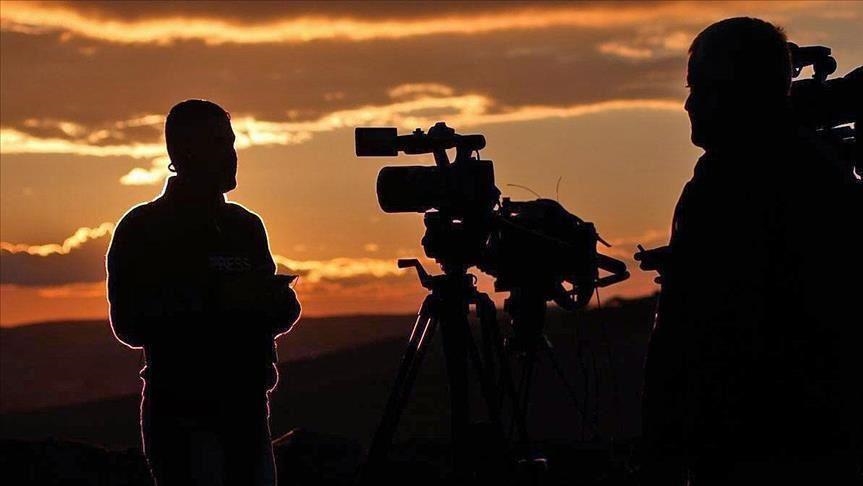On eve of World Press Freedom Day, Zimbabwean scribes claim increase in cases of arrests, intimidation during pandemic – Anadolu Agency
Source: Zimbabwe: ‘Press freedom suffers even after independence’
HARARE, Zimbabwe
As the world comes together to commemorate World Press Freedom Day on Monday, Zimbabwean scribes say they have little to celebrate.
They said that continued arrests and intimidation, even after the African country gained independence 41-years ago are more baffling.
“Zimbabwe has not fared well in as far as press freedom is concerned. Arrests of journalists, intimidation, and torture of journalists while conducting their work has continued even 41 years after independence,” Mlondolozi Ndlovu, President of the Young Journalists Association, told Anadolu Agency.
In May last year, Zimbabwean journalist Samuel Takawira, 30, was arrested for interviewing hospitalized opposition activists who had protested against the government’s alleged failure to provide relief to the poor during the COVID-19 lockdown.
Barely a year later, he was again assaulted by anti-riot police in the capital Harare, outside a court, where opposition activist Makomborero Haruzivishe was sentenced to a 14-month jail for inciting violence.
Takawira reports for 263Chat, an online Zimbabwean news website.
Even veteran journalist Hopewell Chin’ono, who has won praises for exposing corruption was arrested allegedly for circulating a video showing a policeman flogging a child while enforcing lockdown.
The child was said to have died in the process although police later dismissed the claim.
Chinono has been in and out of jail during his career. Last year he spent 45 days at Chikurubhi prison after he had reported corruption in procuring the material to combat COVID-19.
He was first arrested in July last year and faced charges of inciting violence against the government. He was put behind bars again in November on charges of obstructing justice.
According to the Media Institute of Southern Africa (MISA), there have been 52 cases of assaults, harassment, and attacks on the media in 2020 as compared to 27 in 2019.
Safety, security big issue
Speaking to Anadolu Agency Tabani Moyo, director for MISA Zimbabwe said that the safety and security of journalists was a big issue in the country in the wake of the increasing number of attacks.
He said the situation exacerbated because of the outbreak of the pandemic as journalists were not listed as essential services. Therefore, while coming out to perform their professional duties, they bore the brunt of attacks from soldiers and police.
Moyo, however, said there was some silver lining as access to information has improved in the country over the years.
“I think in terms of what has improved is access to information and media access to information in general. There has been an improvement with the Information Ministry on the post-cabinet briefing with the media, secondly, the implementation of the Access to Information and Protection of Privacy Act though inconclusive,” he said.
He lamented that the ruling elite was increasingly consolidating ownership of the broadcasting space. He said the state was using its control in terms of issuance of licenses for starting television channels for commercial purposes and community radio stations and campus radio stations.
Virginia Muwanigwa, who is chief executive officer at the Zimbabwe Gender Commission said a new form of harassment now comes in the form of cyberbullying.
“Cyberbullying through social media has increased creating a relatively new arena of violence against women and girls. The abuse has resulted in reticence by women to use the media is not only amplifying their voices but also providing alternative viewpoints based on diversity,” she said.
Little improvement
Lucy Yasini, a Zimbabwean journalist, however, said that there has been a little improvement in the media accreditation process at both the Zimbabwe Media Commission and parliament.
“Before, it was difficult for those in the private media, worse still for freelance journalists to renew their annual media accreditation,” said Yasini.
“The biggest threat to media freedom in Zimbabwe currently is of course the state, but I haven’t seen too many violations of media freedom now. We only have of course few journalists being harassed here and there,” Nkosana Dlamini who is the editor for NewZimbabwe.com, an online independent news website told Anadolu Agency.

COMMENTS